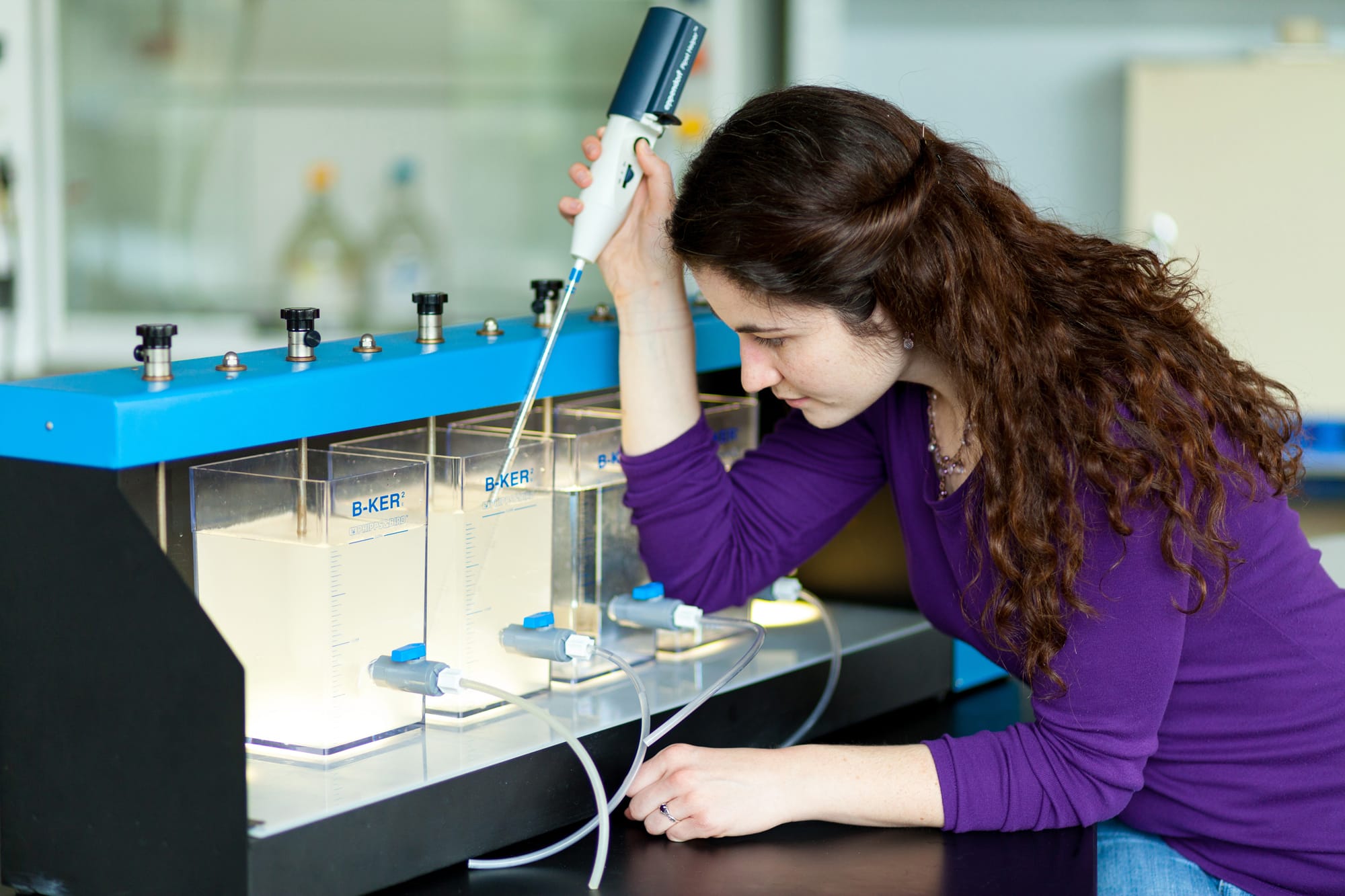What she discovers on her upcoming trip to India could one day help change the lives of millions.
Yet Camas High alumna Jennifer Brannan knows better than to view her water treatment research in such a grandiose light — especially when her work is more than three months and 7,000 miles away.
“For my own sanity, I don’t think of it that way,” she said. Research does not always yield desired results, she explained; but this project has promise. “It is exciting going into it, knowing potentially this could make a difference in the world,” she allowed herself to admit.
Brannan, a 2008 Camas High graduate, won a prestigious Fulbright grant this spring to study water treatment methods in India for 10 months stretching into next spring. The 22-year-old is scheduled to graduate today from the University of Portland with a civil engineering degree.
Beginning in August, Brannan will mix extracts from seeds of Moringa oleifera, a tree native to India, with water taken from local rivers, such as the Ganges, to determine whether they yield cleaner water. The Indian Institute of Technology at Kanpur (IIT) has agreed to work with Brannan and provide experimental equipment and assistance.
Only 25 percent of India’s more than 1 billion residents have access to drinking water in their homes, a fact Brannan highlighted in the second sentence of her Fulbright letter. The hope of the study is that Moringa oleifera seeds can remove heavy metals, pathogens and turbidity (cloudiness) from the river water, and thus make it safe to drink.
Brannan started the research in a lab on the campus of Purdue University in West Lafayette, Ind., during a 10-week summer internship in 2011.
Studying water treatment in developing countries appealed to her when she started college, she noted. Her empathetic nature made an instant impression on University of Portland civil engineering professor Matthew Kuhn.
“From the start, she stood out as someone not only, who would be a good student, but someone who cared for helping others,” Kuhn said. “She was someone who had the ability to get things done and lead others.”
While she was at Purdue, civil engineering professor Ernest Blatchley III challenged Brannan to focus her efforts on India, she noted in her Fulbright letter.
The experience “forced me out of my comfort zone,” Brannan recalled of Purdue, noting that she joined a nondenominational church and bonded with her classmates while in Indiana.
Brannan possessed a desire to learn and teach, plus a strong work ethic, all of which would help her in India, Blatchley said. He described his student as “why I do what I do.”
“She still has a lot to learn, but she’s going to get it done,” he said.
Brannan has never been to India, but the country has been on her mind and in her heart since her freshman year of college.
God put it there, she answered when asked why.
During her first year of college, a co-worker visited her church, Warehouse Christian Church in Washougal, and prayed for God to expand her boundaries. The two had not talked about his saying the prayer; he just did it, Brannan recalled.
When she prayed a similar prayer, India came up — on the TV, in conversation and elsewhere — often enough for her to know she was destined to go there.
Nearly four years later, Brannan found herself sitting in a computer lab at the University of Portland. Waiting in her inbox was the email notifying her she had won a Fulbright grant.
“My emotions went everywhere at once,” Brannan said, noting that she almost screamed as she sat in the computer lab.
The University of Portland is no stranger to Fulbright scholars, having produced 34 since 2001, according to university officials — not including the grants awarded this spring. Brannan’s Fulbright is unusual, her professors said, because most of the scholarships involve students’ performing research in Europe, most notably in Germany.
Brannan’s scholarship will pay for living expenses, travel and some of her research budget, she said. Her work will revolve around “lots of repetitions of similar tests,” she explained, with variations of Moringa oleifera extract used to produce different results.
Certainly, it’s a painstaking task, but one for which Brannan has the ability to succeed, her professors said.
“She really has the desire to improve conditions with respect to water in developing countries,” said Mark Kennedy, an associate professor of civil engineering at the University of Portland.
Brannan has not decided what comes after her work in India. Perhaps she will attend Purdue for grad school, or the University of Cambridge in England.
One day she hopes to teach, likely at the college level, she said.
Before she makes any of these decisions, she might just change the world. Just don’t tell her that.
Ray Legendre: 360-735-4517; http://facebook.com/raylegend; http://twitter.com/col_smallcities; ray.legendre@columbian.com.



